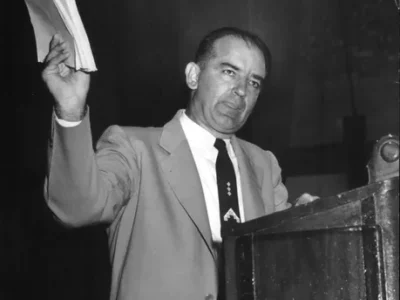Should We Be Upset If Candidates Don’t Provide Concrete Policy Plans?
Policy specifics give me something to write blog posts about. But how much should they matter to voters?
There’s been a drumbeat of criticism of the presidential candidates for their lack of concrete climate proposals. Some of the recent criticism has been of Harris, but you can’t exactly call Trump a policy wonk either. I actually am a policy wonk, so I’d certainly like to see the specifics. But is this something the public should care about? After all, you don’t need specifics to know that Trump and Harris have very different views about climate and energy. Should voters care about their failure to go into detail?
Pushing candidates to provide specifics has some obvious benefits. Having a detailed program is a signal that they’re serious about their promises, rather than “just blowing smoke.” Something that sounds good in the abstract may seem much different to voters once they hear more details. And the ability of candidates to answer questions about specifics is a way of gauging how smart and knowledgeable they are.
On the other hand, pushing candidates to commit to specifics has limited utility for the many voters who aren’t in a position to judge the specifics. Given the limits of my knowledge of Middle Eastern affairs, seeing detailed plans for dealing with Iran wouldn’t help me much. Moreover, in most cases knowing what policies candidates think are ideal is often a poor guide to what they can actually do once in office. Biden’s Build Back Better plan did indicate that he wanted to do something bold about climate change, but it turned out that Joe Manchin, the key Senate vote, had just as much to do with shaping the Inflation Reduction Act.
There are also some risks with having politicians commit to concrete plans. We don’t necessarily want to lock candidates into the positions they had to take during the primary season to appeal to their own parties. Even during the general campaign, if candidates are wedded to too many policy specifics, they may have trouble making the compromises that are really needed to get things done.
For these reasons, it seems to me, policy specifics are most useful as guides to some larger questions about a candidate’s policy stance: Are their hearts in the right place? Are they serious about addressing the issue? Are they reasonable people, do they have smart advisors, and are they willing to listen to them? How willing are they to compromise?
Candidates may have good reason to provide more details about their policies. They could be more moderate or more extreme than the average members of their party, and policy specifics can be a way of showing that. They may have ideas that could capture public attention. In a country as polarized as ours, however, you don’t need a weatherman – or a policy analyst – to know which way the wind blows.
Reader Comments
3 Replies to “Should We Be Upset If Candidates Don’t Provide Concrete Policy Plans?”
Comments are closed.






Dan, our institutions can’t even protect our children, how can we expect them to save our environment after so many decades of failure!!!
Harris campaign dodges questions over EV mandate walkback – ‘Axios asked Harris campaign to clarify her position’ but the ‘Harris’ campaign ultimately declined to comment!!!
https://www.axios.com/2024/09/04/kamala-harris-campaign-ev-mandate
Kamala is distancing herself from climate controversy and focusing on abortion. Her handlers know that fake climate mitigation (EVs, solar, wind, carbon capture, sustainability, green energy, environmental justice, etc.) is losing support among voters.